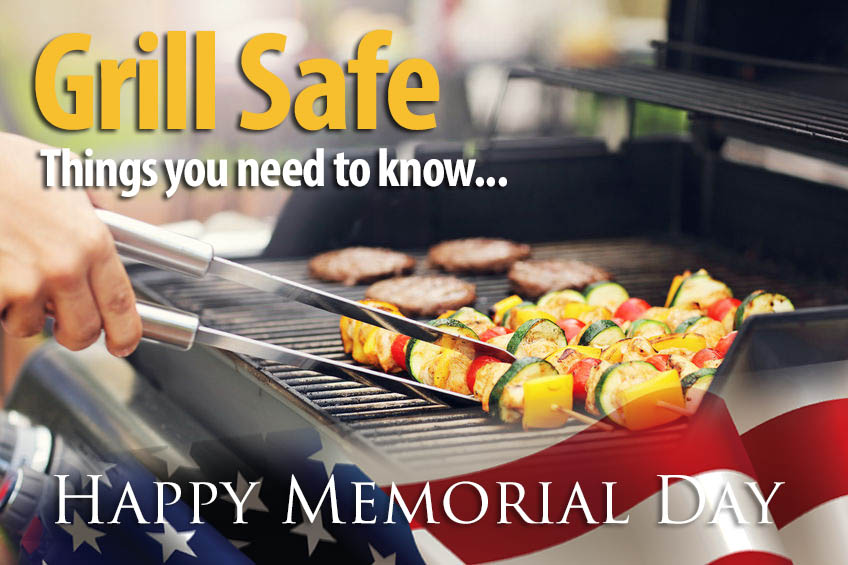#grilling #MemorialDay #safety #CDC
Memorial Day is 1 of the 2 biggest grilling days of the yr and before anyone falls completely under the spell of smoke and sizzle, it pays to remember that the principles of food safety still apply when cooking outdoors.
Food-borne illness is is not small thing. The Centers for Disease Control and Prevention (CDC) estimate that 48-M people get sick, 128-K are hospitalized and 3-K die from food-borne diseases each year in the US.
“Outdoor cooking requires additional attention to food safety since you don’t have your usual food safety tools handy, such as a refrigerator to maintain safe temperatures and sink with running water to clean tools, plates and hands,” said Mary Jane Cody, a Perry County extension agent for the University of Arkansas System Division of Agriculture. “It’s important not to forget these realities even while we’re having fun outside.”
Memorial Day is the 2nd-biggest grilling day of the yr, with 56% of US adults cooking out, topped only by July Fourth’s 68%, according to the Hearth, Patio and Barbecue Association (HPBA).
When asked why people grill, the HPBA found that 68% grilled for the flavor, followed by “lifestyle” at 45%, convenience at 33%, entertainment at 32%; and 19% said it was a hobby.
Kristen Gibson, associate professor of food safety and microbiology at the University of Arkansas-Fayetteville, says grillers should add 1 more tool to their collection of spatulas, tongs and plates.
“Your thermometer is your best friend when grilling!” she said. “Cutting and visually inspecting your meat of choice will not tell you the temperature or whether it is adequately cooked.”
She also urged grillers to “avoid cross contamination. Tongs and spatulas should be washed with soap and water or changed after placing or moving raw meat on the grill.”
The following are reminders to keep food-borne illness from ruining a picnic, block party or family dinner al fresco:
CLEAN — Wash hands with soap before and after handling raw meat, poultry and seafood. Wash work surfaces, utensils and the grill before and after cooking. Consider the grilling location. If there’s no source of clean water, cooks should bring it with them for prep and cleaning. They might even consider using vinyl gloves to handle raw meat.
SEPARATE — Do not cross-contaminate. Throw out marinades and sauces that have touched raw meat juices. Put cooked meat on a clean plate.
COOK — Use a food thermometer to ensure meat is cooked hot enough to kill harmful germs. When smoking, keep temperature inside the smoker at 225 degrees Fahrenheit to 300 degrees Fahrenheit to keep meat at a safe temperature while it cooks.
CHILL — It’s important to keep cold foods cold — only take outside what will be immediately placed on the grill. Keep meat, poultry and seafood refrigerated until ready to grill. When transporting, keep below 40 degrees Fahrenheit in an insulated cooler. Always keep hot foods hot. After cooking meat and poultry, keep it hot until ready to serve at least 140 degrees Fahrenheit or warmer.
REFRIGERATE — Refrigerate any leftovers right away. If one plans to re-heat those hot dogs and hamburgers on the grill, be sure that they reach 165 degrees Fahrenheit, and discard any food left sitting out over one hour. Divide leftovers into small portions and place in covered, shallow containers. Put in freezer or fridge within two hours of cooking, or one hour if above 90 degrees Fahrenheit outside.
Have a happy, healthy Holiday weekend, Keep the Faith!









